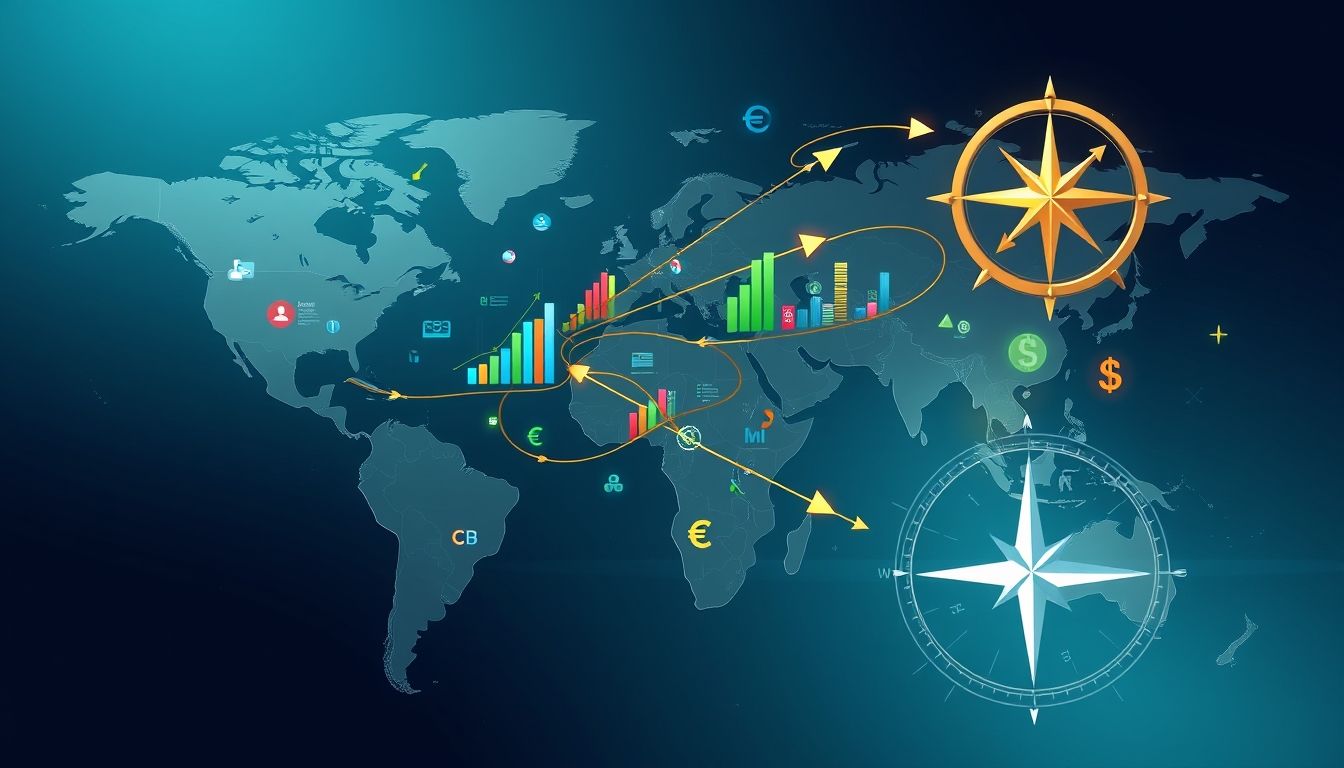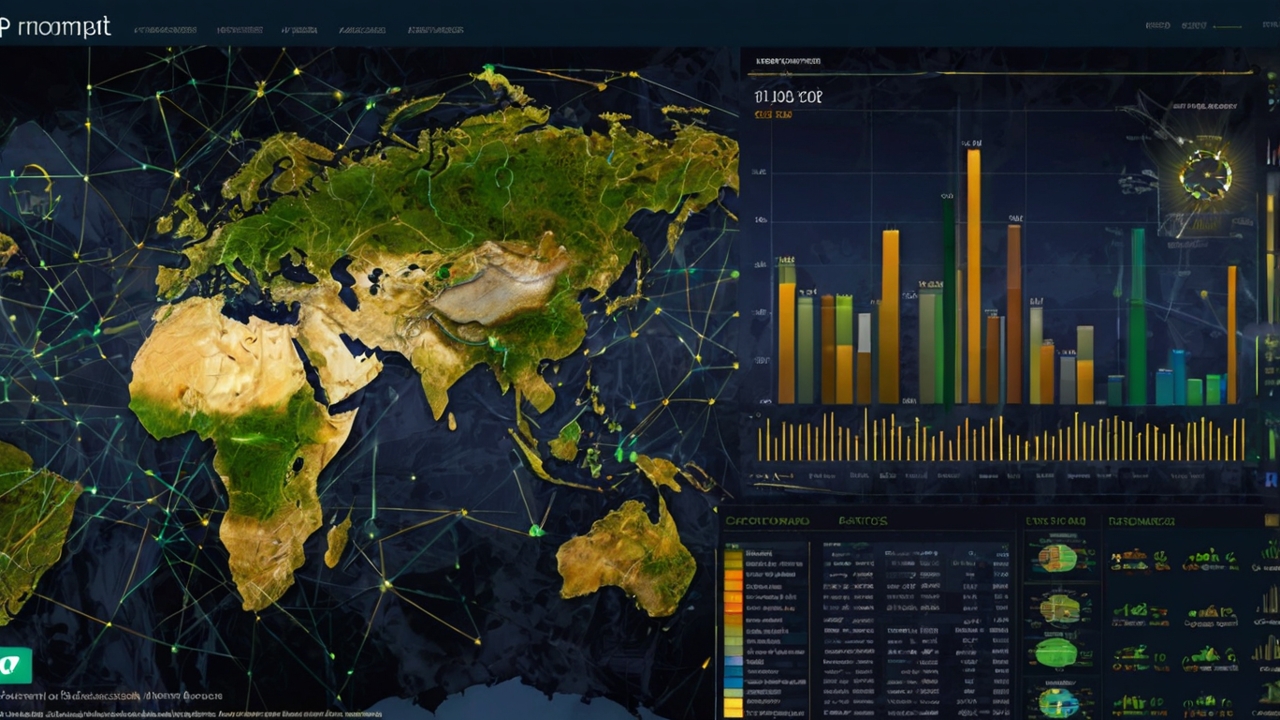الاستثمار الدولي للمستثمر العربي: فرص النمو وتنويع المخاطر
في عالم يتسم بالعولمة والترابط الاقتصادي، أصبح الاستثمار الدولي ضرورة حتمية للمستثمرين الذين يسعون إلى تحقيق النمو المستدام وتنويع المخاطر. بالنسبة للمستثمر العربي، يمثل الاستثمار الدولي فرصة سانحة للاستفادة من الأسواق العالمية، وتجاوز محدودية الأسواق المحلية، وتحقيق عوائد مجدية.
الفصل الأول: لماذا الاستثمار الدولي مهم للمستثمر العربي؟
الاستثمار الدولي يقدم العديد من المزايا للمستثمرين العرب، بما في ذلك:
- تنويع المخاطر: توزيع الاستثمارات على مناطق جغرافية مختلفة يقلل من تأثير الأحداث الاقتصادية والسياسية المحلية على المحفظة الاستثمارية.
- الوصول إلى فرص نمو جديدة: الاستثمار في الأسواق الناشئة أو المتقدمة يتيح الوصول إلى قطاعات وصناعات غير متوفرة في الأسواق المحلية.
- التحوط ضد التضخم وتقلبات العملة: الاستثمار في أصول مقومة بعملات مختلفة يساعد على حماية القيمة الشرائية للمحفظة.
- تحسين العائد على الاستثمار: بعض الأسواق العالمية تقدم عوائد أعلى من الأسواق المحلية، مما يزيد من إمكانية تحقيق أرباح أكبر.
الفصل الثاني: تقييم المخاطر والفرص في الأسواق العالمية
قبل الشروع في الاستثمار الدولي، يجب على المستثمر العربي إجراء تقييم شامل للمخاطر والفرص في الأسواق المختلفة. يشمل ذلك:
- تحليل الاقتصاد الكلي: تقييم النمو الاقتصادي، ومعدلات التضخم، وأسعار الفائدة، وأسعار الصرف في البلد المستهدف.
- تحليل القطاعات والصناعات: تحديد القطاعات والصناعات الواعدة التي تتمتع بإمكانات نمو قوية.
- تقييم المخاطر السياسية والقانونية: فهم البيئة السياسية والقانونية في البلد المستهدف، وتقييم المخاطر المتعلقة بالاستقرار السياسي، وحقوق الملكية، والضرائب.
- تحليل المخاطر التشغيلية: تقييم المخاطر المتعلقة بالبنية التحتية، والعمالة، والتنظيمات الحكومية.
الفصل الثالث: استراتيجيات الاستثمار الدولي للمستثمر العربي
هناك العديد من الاستراتيجيات التي يمكن للمستثمر العربي اتباعها للاستثمار في الأسواق العالمية، بما في ذلك:
- الاستثمار المباشر: شراء أسهم في شركات أجنبية، أو الاستثمار في العقارات، أو إنشاء مشاريع تجارية في الخارج.
- الاستثمار غير المباشر: شراء صناديق الاستثمار المتداولة (ETFs) أو صناديق الاستثمار المشتركة التي تستثمر في الأسواق العالمية.
- شراء السندات الأجنبية: الاستثمار في السندات الحكومية أو الشركات الأجنبية.
- الاستثمار في العملات الأجنبية: شراء وبيع العملات الأجنبية للاستفادة من تقلبات أسعار الصرف.
الفصل الرابع: اختيار الأدوات الاستثمارية المناسبة
يعتمد اختيار الأدوات الاستثمارية المناسبة على أهداف المستثمر، وتحمله للمخاطر، والأفق الزمني للاستثمار. يجب على المستثمر العربي أن يأخذ في الاعتبار ما يلي:
- صناديق الاستثمار المتداولة (ETFs): توفر تنويعًا فوريًا بتكلفة منخفضة، وتتبع مؤشرات الأسهم العالمية أو القطاعات الصناعية.
- صناديق الاستثمار المشتركة: تدار من قبل مديري محافظ محترفين، وتوفر تنويعًا أوسع، ولكنها قد تكون أكثر تكلفة.
- الأسهم الفردية: تتطلب بحثًا وتحليلًا متعمقين، ولكنها قد توفر عوائد أعلى.
- السندات: تعتبر أقل خطورة من الأسهم، وتوفر دخلًا ثابتًا، ولكنها قد لا تحقق عوائد عالية.
الفصل الخامس: إدارة المخاطر في الاستثمار الدولي
إدارة المخاطر هي عنصر أساسي في الاستثمار الدولي. يجب على المستثمر العربي اتخاذ التدابير التالية لتقليل المخاطر:
- تنويع المحفظة: الاستثمار في مجموعة متنوعة من الأصول والأسواق.
- تحديد حجم الاستثمار: عدم تخصيص جزء كبير من المحفظة للاستثمارات الدولية.
- استخدام أدوات التحوط: استخدام المشتقات المالية للتحوط ضد تقلبات العملة أو أسعار الفائدة.
- مراجعة المحفظة بانتظام: تقييم أداء المحفظة وتعديلها حسب الحاجة.
الفصل السادس: الاعتبارات الضريبية والقانونية
يجب على المستثمر العربي أن يكون على دراية بالاعتبارات الضريبية والقانونية المتعلقة بالاستثمار الدولي. قد تختلف القوانين واللوائح الضريبية من بلد إلى آخر، وقد يكون هناك اتفاقيات ضريبية بين الدول العربية والدول الأخرى. يجب على المستثمر العربي استشارة مستشار ضريبي وقانوني متخصص قبل اتخاذ أي قرارات استثمارية.
الفصل السابع: أمثلة عملية من السوق العربي
شهدت المنطقة العربية تزايدًا في اهتمام المستثمرين بالاستثمار الدولي. على سبيل المثال، تقوم العديد من الصناديق السيادية في دول الخليج باستثمارات كبيرة في الأسواق العالمية، وتستثمر الشركات العائلية العربية في العقارات والشركات الأجنبية. كما أن هناك زيادة في عدد المستثمرين الأفراد الذين يستثمرون في الأسهم والسندات الأجنبية عبر الإنترنت.
الفصل الثامن: دور التكنولوجيا في تسهيل الاستثمار الدولي
أدت التكنولوجيا إلى تسهيل الاستثمار الدولي للمستثمرين العرب. تتيح منصات التداول عبر الإنترنت الوصول إلى الأسواق العالمية بتكلفة منخفضة، وتوفر تطبيقات الهاتف المحمول معلومات وتحليلات حول الأسواق المختلفة. كما أن هناك العديد من الشركات الناشئة التي تقدم خدمات استشارية في مجال الاستثمار الدولي.
الفصل التاسع: نصائح عملية للمستثمر العربي الطموح
إليك بعض النصائح العملية للمستثمر العربي الذي يطمح إلى الاستثمار في الأسواق العالمية:
- ابدأ صغيرًا: ابدأ باستثمار مبالغ صغيرة في الأسواق التي تفهمها جيدًا.
- استثمر على المدى الطويل: لا تحاول تحقيق أرباح سريعة، وركز على الاستثمار على المدى الطويل.
- تعلم باستمرار: ابق على اطلاع دائم بالتطورات في الأسواق العالمية.
- استشر الخبراء: لا تتردد في طلب المشورة من المستشارين الماليين المتخصصين.
الفصل العاشر: مستقبل الاستثمار الدولي للمستثمر العربي
من المتوقع أن يستمر الاستثمار الدولي في النمو في المنطقة العربية في السنوات القادمة. مع تزايد الوعي بأهمية تنويع المخاطر والبحث عن فرص نمو جديدة، سيزداد اهتمام المستثمرين العرب بالأسواق العالمية. ستلعب التكنولوجيا دورًا حاسمًا في تسهيل الاستثمار الدولي وجعله أكثر سهولة وفعالية من حيث التكلفة.
"الاستثمار الدولي هو عملية تخصيص رأس المال في بلد واحد للاستخدام في إنتاج السلع والخدمات في بلد آخر." - Investopedia




